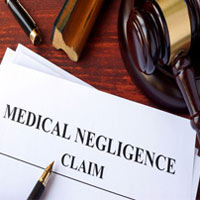Surgical Errors Involving Medical Machines
October 17, 2018 Medical errors happen more often than you might think. In fact, it has been reported that medical errors are the third biggest killer in the United States. Over the years, advances in artificial intelligence (AI), including systems that can identify heart-attack risks and others that can recognize certain types of cancer, have helped dramatically reduce the number of potentially life-threatening medical mistakes that jeopardize the health and safety of patients. However, like humans, these machines are not error-proof. This raises the question of liability and who is to blame if a medical machine is responsible for a patient who becomes seriously injured.
Medical errors happen more often than you might think. In fact, it has been reported that medical errors are the third biggest killer in the United States. Over the years, advances in artificial intelligence (AI), including systems that can identify heart-attack risks and others that can recognize certain types of cancer, have helped dramatically reduce the number of potentially life-threatening medical mistakes that jeopardize the health and safety of patients. However, like humans, these machines are not error-proof. This raises the question of liability and who is to blame if a medical machine is responsible for a patient who becomes seriously injured.
AI can be extremely effective in helping medical specialists diagnose or identify specific health risks. However, they do not replace the specialist’s opinion. Rather, they are used as a decision aide that compliments the specialist’s treatment recommendations. According to a fellow in health and intellectual property law at DePaul University, AI does not replace the experience and knowledge of the medical professional. As a result, if something goes wrong, the healthcare provider using the AI will be held liable for any resulting injuries to the patient, with a few exceptions.
Understanding Liability in Medical Errors Involving AI
One exception is if the physician followed the standard of care when treating the patient. For example, if a physician prescribed a routine antibiotic for a patient, and it turns out that the patient is allergic to the medication, the physician and the AI would not be liable for the allergic reaction if he or she followed the standard of care for prescribing an antibiotic. Just as the physician would be blameless for the allergic reaction if the allergy was not noted in the medical records, the AI should not be expected to prevent a medical error without the necessary information.
Another exception is when the manufacturer of the AI produces a faulty product, and it is a defect that the physician would not be expected to recognize. For example, if an AI that is used to read blood pressure levels malfunctions, which jeopardizes the patient’s health, the manufacturer of the AI would likely be held liable. However, physicians consider several factors when using AI, including diagnostic tests, medical history, and the opinions of other physicians.
As machines become more widely used in the medical industry, healthcare institutions will have to determine at what point a medical error caused by an AI goes from an unfortunate medical mistake to one that is negligent. In addition, if healthcare professionals do not know the intricate, inner workings of the AI, should they be held liable if something goes wrong?
Like autonomous vehicles, it is likely that AI will be more widely used in the medical industry as technology continues to develop. To avoid serious surgical errors that endanger the lives of patients, these devices must meet strict safety regulations. In addition, healthcare professionals using AI must not rely too heavily on the technology, as they are not completely error-proof.
Baltimore Medical Malpractice Lawyers at LeViness, Tolzman & Hamilton Represent Victims of Medical Negligence
If you have been injured during a medical procedure involving a medical machine, or AI, contact the Baltimore medical malpractice lawyers at LeViness, Tolzman & Hamilton. Our experienced team of professionals is committed to protecting your legal rights and securing the maximum financial compensation you deserve for your injuries. To schedule a free consultation, call us today at 800-547-4LAW (4529) or contact us online.
Our offices are located in Baltimore, Columbia, Glen Burnie, and Towson, allowing us to represent medical malpractice victims in Maryland, including those in Anne Arundel County, Baltimore County, Carroll County, Harford County, Howard County, Montgomery County, Maryland’s Western Counties, Prince George’s County, Queen Anne’s County, Southern Maryland, and the Eastern Shore, as well as the communities of Catonsville, Essex, Halethorpe, Middle River, Rosedale, Gwynn Oak, Brooklandville, Dundalk, Pikesville, Nottingham, Windsor Mill, Lutherville, Timonium, Sparrows Point, Ridgewood, and Elkridge.






